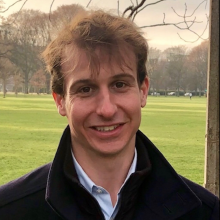I study human language as a robust communication and information-processing system. To that end, I generate hypotheses using ideas from information theory about what makes for efficient communication and ideas from machine learning about how language is processed. I test these predictions by running behavioral experiments, building computational models, and analyzing large language data sets. Using this framework, I have worked on various puzzles in language research, such as when and why words shorten (Mahowald et al., 2013; Cognition), the relationship between word frequency and phonetic form (Mahowald et al., 2018, Cognitive Science), and how grammars are structured for ease of processing (Futrell, et al., 2015, PNAS). This work has used data-driven approaches to show that many external features of human language can be explained by considerations of communicative efficiency. My current work is largely centered on how we can use those ideas, along with insights from linguistics, in order to aid interpretability of large-scale deep neural models of language in NLP and machine learning. I have a secondary research program in quantitative methods in the behavioral sciences, focused on how we can make our science more robust, fair, and equitable.
Kyle Mahowald is an assistant professor of linguistics at UCSB, with research interests in computational psycholinguistics. He obtained his Ph.D. in cognitive science at MIT, and his postdoc was in the Natural Language Processing (NLP) group at Stanford, where he focused on how linguistic typology can inform our understanding of deep neural models of language. He also worked for 3 years in industry, as an algorithm developer at Hudson River Trading, and is an avid crossword puzzle constructor and solver.
